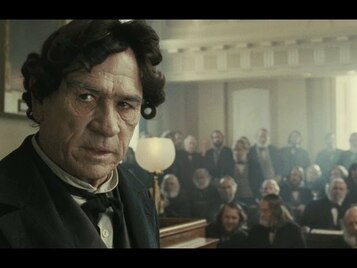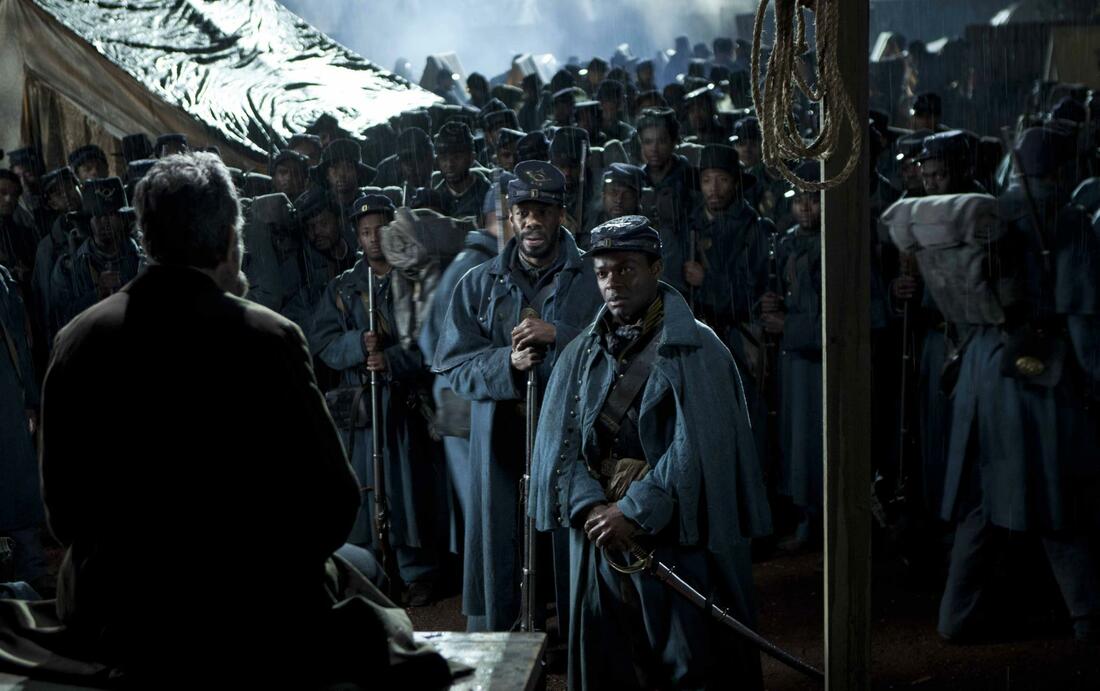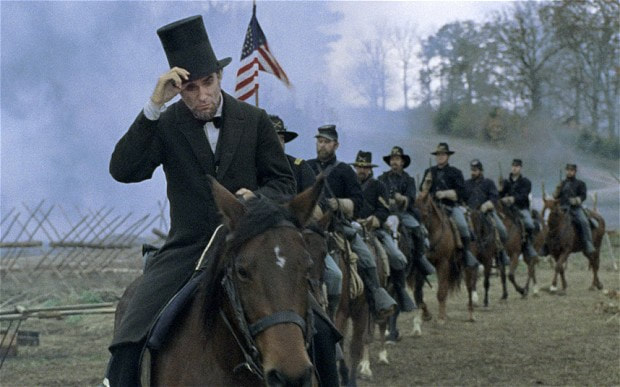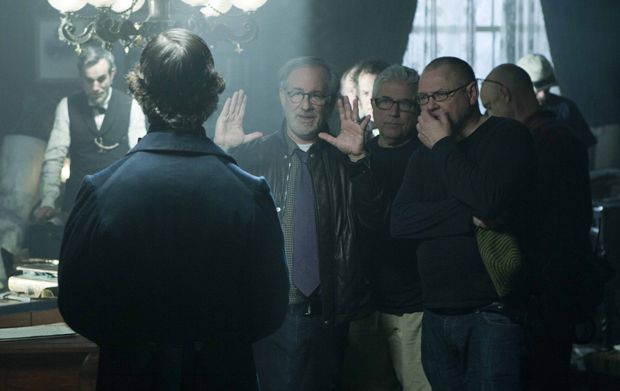|
As we approach the end of the SpielBlog, I'd be lying if I didn't say it gets a bit tough. War Horse, Tintin, Indy 4, and soon Bridge of Spies, the BFG and The Post see something of a slump in quality. But Lincoln is a masterpiece, an adult work that takes its own mission and history seriously, while at the same time maintaining an eye for the human and the humour in the details of a historical canvas. When Spielberg bought the rights to Doris Kearns Goodwin's Team of Rivals before the book had even been written. His instincts this time proved right. The book is a masterpiece in historical narrative and strips away the all too familiar iconography of the 16th President of the United States to reveal an astute and wily politician who nevertheless manages to hold onto a keen sense of right and wrong. Development saw Liam Neeson drop out and several screenwriters tackle and then crumble under the weight of the task. Tony Kushner - the screenwriter of Munich - submitted an unfilmable 500 page draft but within it Spielberg spied a section covering the passing of the 13th Amendment and recognized his film. After much prevarication - including telephone calls from Leonardo di Caprio - Daniel Day Lewis finally accepted the role and Spielberg assembled a stunning ensemble including Sally Fields, Tommy Lee Jones, Hal Holbrook, David Strathairn, Joseph Gordon-Levitt and James Spader.  With the film focused on the manageable period of the presidency, Lincoln's triumph seems to be behind him. He has won re-election - his unlikely first election is not even mentioned - he has issued his emancipation proclamation and delivered the Gettysburg Address. He is on the verge of triumphing in the Civil War with the Confederate generals seeking terms for surrender. Yet he also realizes that there is a chance that he could lose the peace. The gains achieved due to his war powers are not secure and hence the need for the 13th. In order to gain the necessary two thirds majority in the senate, Lincoln will need to flip a substantial number of Democrats to the cause and much of the film is taken up with the back room politicking that makes Lincoln feel like a prequel to the TV show The West Wing. But it is tribute to the actors and the deftness of the script that both the tactics and the urgency of the cause are clear throughout. Complex points of law and explained at length and make for riveting drama. It reminds me of what the great director John Sayles said about his script doctoring job on Apollo 13: 'Leave the science in'. The stuff that would usually be passed over or simplified is played out in full: the devil and the drama is in the detail. A lot of this comes down to the acting and not just the behemoth that is Daniel Day-Lewis, who disappears utterly into the role, but to the incredibly strong support that he is. Everyone is bringing their A-game, but Tommy Lee Jones deserves special mention in a role which could actually be considered the second lead. His Thaddeus Stevens is part gouty monster, part moral center. The man who must compromise his ideals in order to see a semblance of those ideals come true. The scene between him and Lincoln in the cellar is particularly strong and yet both actors restrain themselves from any attempt to play the scene - unlike say Al Pacino and Robert De Niro in Heat. Day Lewis manages to create a human Lincoln who is twinkly and affable as a politician glad handing his constituents, but who has a hard wood skeleton beneath of absolute will. His folksy stories are a way of distracting and deflecting not only others but his own deep depression - partly suffered as part of his disposition and partly caused by the death of his son. When his reserve breaks down, the human pain is revealed and the genuine anger at a life disappointed and broken by time and circustance. In my entry on War Horse I was fairly damning of the cinematography of Janusz Kamiński, but here he is back to his Schindler's List best. He manages to make the historical tableaux of the Senate come to life while retaining its grandeur; the low garret of James Spader and his political fixers; the intimacy of the White House living quarters and when the film strays outside the world feels real. You can see Spielberg applying the lessons he learned when making Amistad. Battles take place in muddy hand to hand fighting. Horror is here too. This for me is Spielberg's last great film to date. It is close to a masterpiece and that is partly because of the subject matter and also because of the quality of the actors who he managed to assemble. With the Obama Presidency in full swing, there's also a sense that Lincoln is speaking directly to his times. Look who we are; look where we came from; look how difficult it was. Re-watching the film now in the midst of the Trump presidency is a sobering experience. The forces of reaction are now in the ascendancy and the need for resolute leadership, strong moral principle and sharp political acumen are more necessary than ever.
2 Comments
27/2/2023 02:44:23 am
If you suspect frostbite, wrap your dog's extremities in blankets or towels to warm them gradually and see the vet immediately.
Reply
27/2/2023 02:45:52 am
Check the ear tips and tail tips in particular. If they look and feel cold, appear white, red or gray, and/or are dry and hard, then frostbite may have occurred.
Reply
Leave a Reply. |
AuthorJohn Bleasdale is a writer. His work has appeared in The Guardian, The Independent, Il Manifesto, as well as CineVue.Com and theStudioExec.com. He has also written a number of plays, screenplays and novels. Archives
March 2019
|



 RSS Feed
RSS Feed


